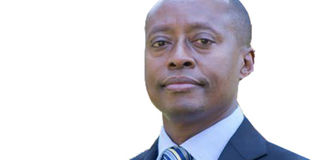Political maturity offers conducive environment for economic growth

Robert Mwesigwa
What you need to know:
Big opportunity. In September, Uganda is slated to host more than 2,500 delegates for the UN South-South Cooperation meeting, a high international summit under the auspices of the United Nations
The March 9, 2018 political truce between President Uhuru Kenyatta and Opposition leader Raila Odinga, now popularly known as ‘the Handshake’, made a significant contribution to the socio-political and economic transformation of our neighbour Kenya in 2018.
Kenya was sinking under the political heat that followed the contested August and October 2017 presidential elections, with economic activity coming to a near standstill. Odinga and his supporters had put the country on tenterhooks with his January 31 swearing-in as the “people’s president’’ at Nairobi’s Uhuru Park.
The two leaders on the steps of the Office of the President at Harambee House on March 9 announcing a truce ushered in a new era of maturity in politicking thus defusing ethnic competition, and divisive elections. At this point, Kenyans realised the one thing that the country needs is peace to improve lives of the citizens.
Ever since the birth of government, politicians - from ancient Greek democracies - to contemporary European parliamentarians, have been debating, often times stirring controversy and at worst dividing countries.
Political competition should never be used as a divisive tool to a population rather it should be used to hold the country together. When different actors express their views with an aim of winning the support of the voters, they offer the population a variety of public policies from which to choose which is best for the country. Through this offering of expanded public policies, competition ushers in better use of resources and also sees political representatives working in the interest of the people rather than for private motives, which in turn translates into enhanced welfare of the citizens.
In 2010, six political parties with representatives in the Parliament of Uganda, established the Interparty Organisation for Dialogue (IPOD) with a commitment from the ruling NRM organisation and the Opposition to regularly engage each other in dialogue aimed at addressing challenges facing the country. When singled out, a single Opposition political party’s ability to influence a political agenda is limited. However, the IPOD offers a platform for these parties to express their opinion, and often times, good views on the way forward for us as a country, thus expanding the policies that the country can adopt.
It is also easier for the ruling NRM to engage with Opposition parties that have clearly outlined programmes because in this way, the NRM is addressing the issues raised in the Opposition policies rather than dealing with an individual. This is also an opportunity that the IPOD had provided. One of the key objectives of IPOD is to promote participation of women and youth in politics, just as the NRM’s policy of all-inclusiveness. As we think about helping skill the youth to curb unemployment, it would be a foolhardy undertaking if we ignored their voice in political organisation of our country.
Perhaps the most important of NRM’s 10-Point Programme -building and independent, integrated and self-sustaining national economy - cannot be done in exclusion of the views and participation of the two majorities of our population, the youth and women.
In September, Uganda is slated to host more than 2,500 delegates for the UN South-South Cooperation meeting, a high international summit under the auspices of the United Nations. The South-South Cooperation is a platform that addresses underlying issues of underdevelopment among member nations, while enabling member countries to build their economies based on the experience of others. As host to 2,500 delegates, among whom will be more than 130 heads of state, Uganda will not just benefit economically in the hospitality and tourism sectors, but it will also have the whole world’s eye on country.
Uganda would never have been considered if not for the current stability and show of political maturity such as through tolerance for different ideologies and peaceful settlement of differences in dialogue and legal processes. As we position ourselves for opportunities such as these and more, we must as a country be prepared for the responsibility that comes with it. Key among the preparations is stability and political maturity. Needless to mention, Uganda’s ranking as a top tourist destination in the world continue to grow with many publishers and research reports naming the country as among the top best tourism destinations in the world.
Parliament is lobbying for increased allocation of resources to agencies involved in promotion and marketing, pushing for an 80 percent increase in the 2018/29 Budget allocation to the tourism sector from the current Shs16.4b to 29.5b. The tourism lobbyists cite the growing number of international visitors to Uganda, increased earnings, and sector contribution to the local job market and increased job opportunities in hotels, travel agents, airlines and other passenger transportation services.
Statistics show tourism revenues soared to Shs5.1 trillion ($1.4b) in 2017 when the country attracted more than 1.3 million international visitors up from a paltry 650,000 recorded in 2007. Experts predict that this number could grow to four million by next year, 2020. Between 2008 and 2016, a rise in annual sector earnings was recorded from $540m to $1.37b, later placing tourism as Uganda’s top foreign exchange earner bringing in $1.4b in the financial year 2016/17.
The potential for the sector to grow lies not just in the tourism attractions that the country possesses but also in the conducive political environment that prevails back home.
We must tap into the tourism basket and to do that, it is incumbent upon all players in the political sphere to realise the immense potential that the country holds so that we put our differences aside and work toward a modern and prosperous economy.
Dr Mwesigwa is the Moroccoan High Consul to Uganda and National chairman, NRM
Entrepreneurs League.


